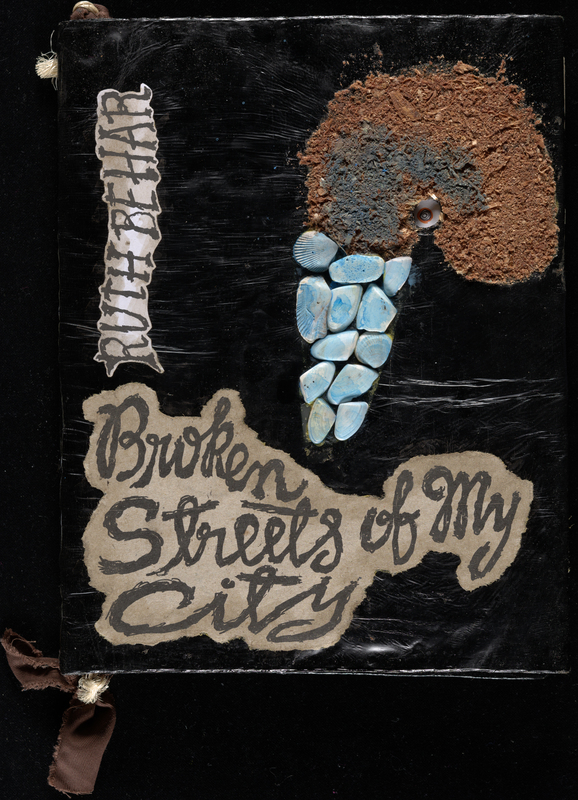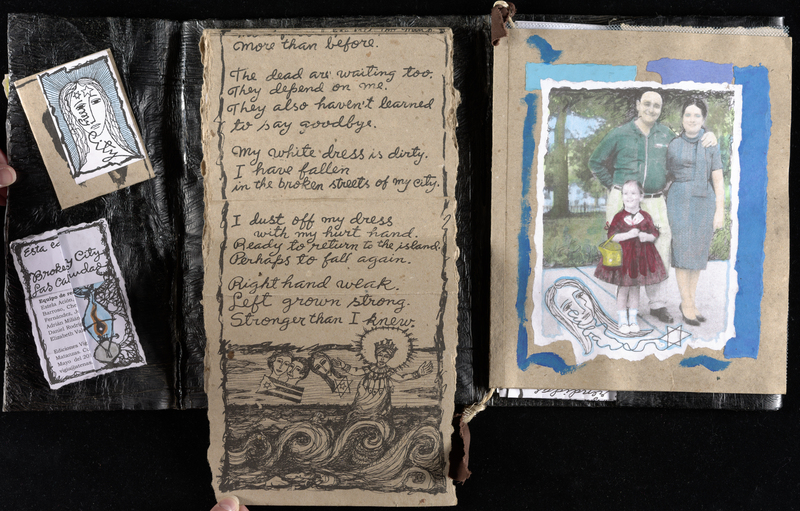Las Calles Rotas De Mi Ciudad: Broken Streets of My City
This artist book speaks to the “brokenness” of a nation and how this subjects the artist to a complicated identity with what she knows as Cuba and her Cubanidad. The book holds a picture of what appears to be the artist and her family in her youth prior to leaving the country. A face of a drawn woman crying from her left eye makes what would normally be a very typical happy family picture have an undertone of confusion and loss. Her personal written poem describes longing for the country she once knew and can no longer be recovered. It starts by stating “The streets of my city are broken and no one can fix them.”
The center of the book of the book boasts an collage that creates a body of water as well as a quote stating "Agua, Yemaya..." This sections divides the book into two portions: the English and Spanish side. Yemaya is a major water deity of the Yoruba religion. In Cuban santeria, she is the mother of all living things, as well as the oceans and seas. As an island completely surrounded by water, this could be her making an offering to Yemaya to protect the country she loves.
Behar describes the anxiety of a nation that has seen political turmoil and instability. Where she would once be able to innocently look at people in the eye, she now saw something that evoked fear. She no longer is perceived as the same woman in this nation she called her home. Since the political changes of the Castro Regime, the streets of La Habana where she would once dance, are places she feels she can no longer dance again. The poem reveals an anti-Castro undertone, when she states “He treated me like an old woman, I haven’t danced again.” While this “he” is never entirely defined, it alludes to the idea that someone of authority changed how this woman felt about her Cuban identity:she could no longer be her liberated childhood-self that she once knew.


